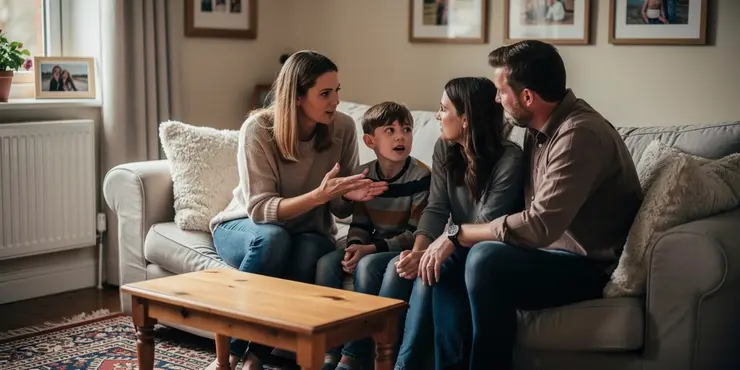
Find Help
More Items From Ergsy search
-
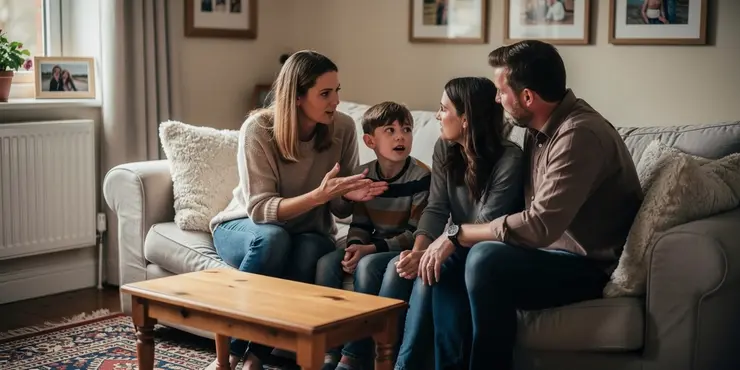
How can families support a member with autism?
Relevance: 100%
-

What is Autism?
Relevance: 72%
-

Can autism be cured?
Relevance: 71%
-

Is there an autism test?
Relevance: 70%
-
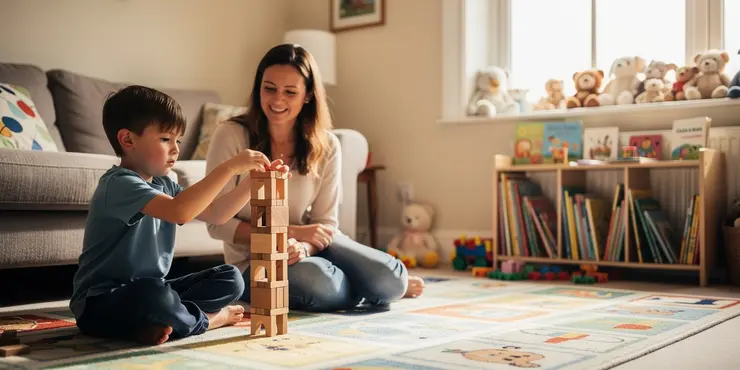
What is the autism spectrum?
Relevance: 69%
-

Autism: Graeme's story | NHS
Relevance: 69%
-

How prevalent is autism?
Relevance: 69%
-
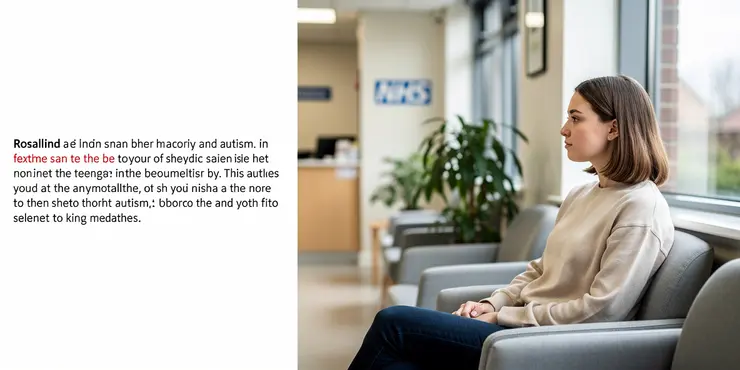
Autism - My Story - Rosalind | NHS
Relevance: 67%
-

Can adults have autism?
Relevance: 66%
-
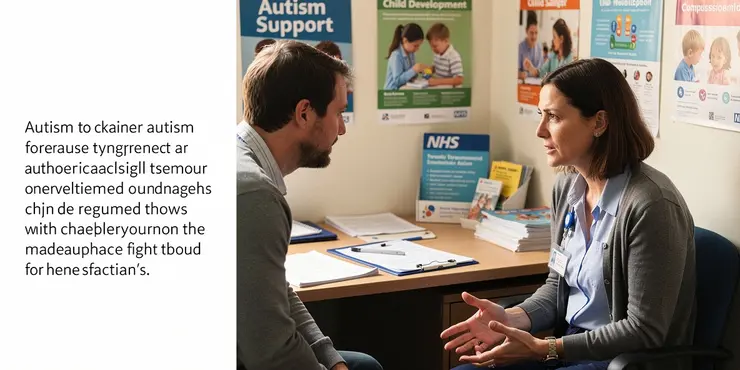
What causes autism?
Relevance: 66%
-
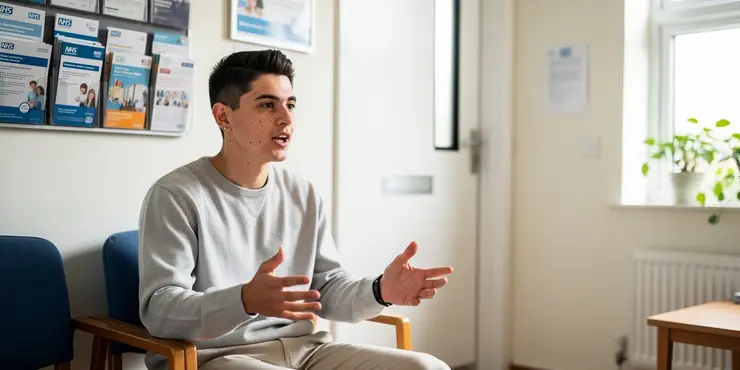
Autism - My Story - Adrian | NHS
Relevance: 65%
-

How is autism diagnosed?
Relevance: 65%
-

Is there a genetic component to autism?
Relevance: 65%
-

Can people with autism lead independent lives?
Relevance: 65%
-

The NHS Long Term Plan for learning disability and autism
Relevance: 64%
-
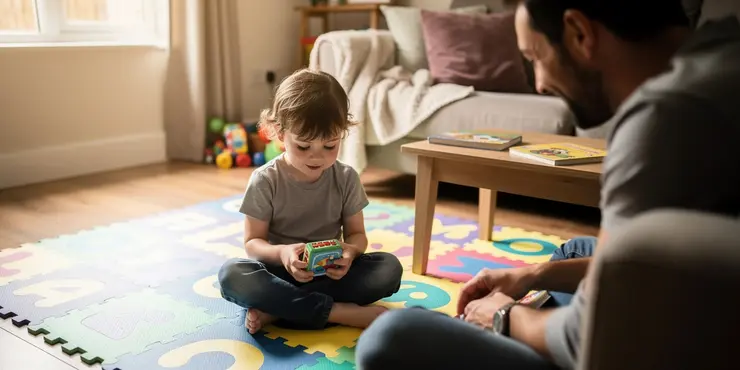
What are the signs of autism?
Relevance: 63%
-

What can cause autism, if not paracetamol?
Relevance: 62%
-

What advice is available for parents concerned about autism risks?
Relevance: 60%
-

Are vaccines linked to autism?
Relevance: 60%
-
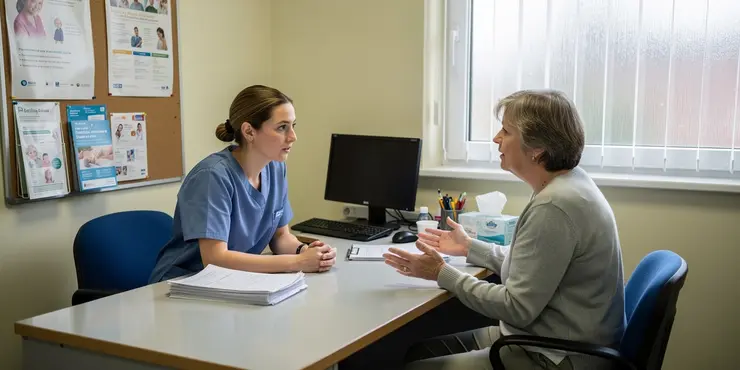
Autism Assessment - What Happens in Your Appointment
Relevance: 60%
-

How does autism affect communication?
Relevance: 59%
-
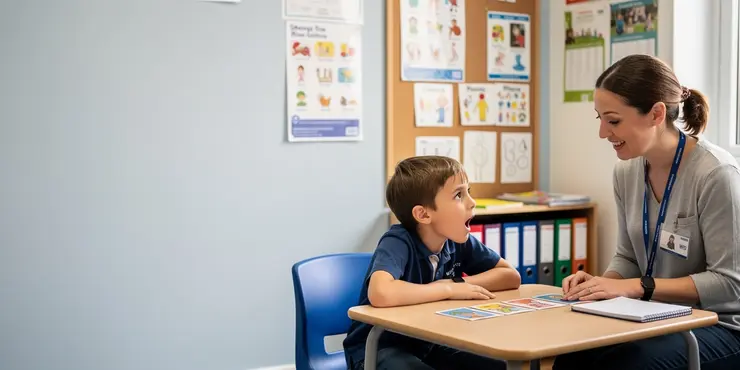
What are some common therapies for autism?
Relevance: 59%
-

What is the difference between autism and Asperger's syndrome?
Relevance: 59%
-

Is autism more common in boys or girls?
Relevance: 59%
-
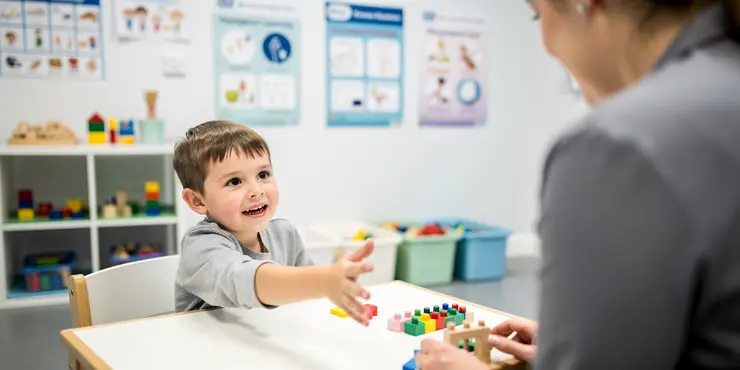
How can early intervention help children with autism?
Relevance: 58%
-

Is paracetamol linked to autism?
Relevance: 57%
-

Transforming Care for people with Learning Disabilities and/ or Autism: Peter's Story
Relevance: 55%
-
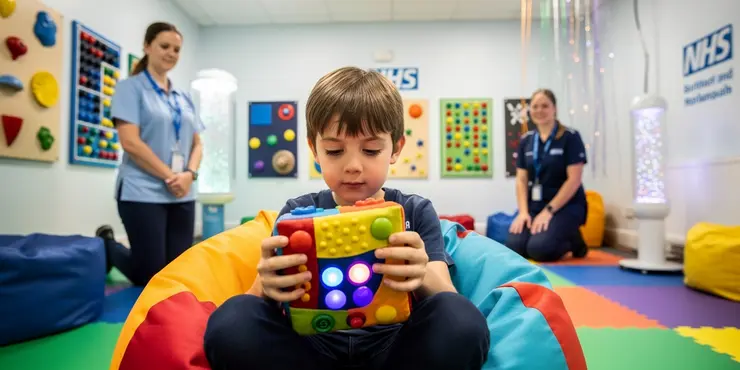
What role do sensory issues play in autism?
Relevance: 55%
-

Mental Health Support Resources for Families
Relevance: 52%
-
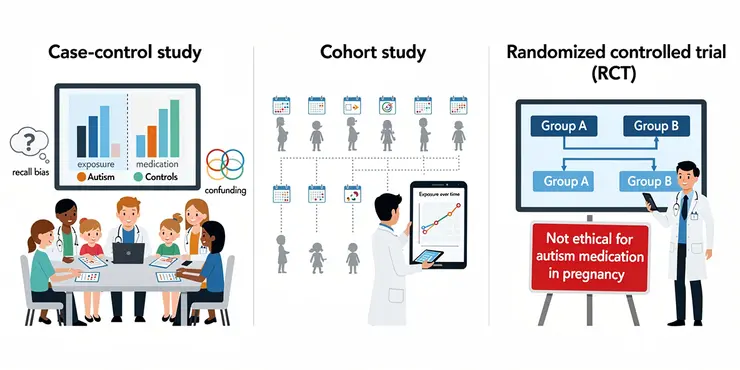
What kind of studies are conducted to investigate links between medications and autism?
Relevance: 51%
-
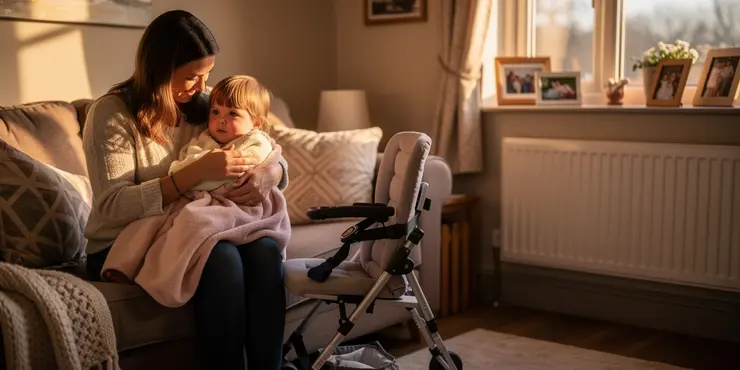
What support is available for families of individuals with PIMD?
Relevance: 50%
-

Is there any scientific evidence that links paracetamol use to autism?
Relevance: 50%
-

Why is there concern about paracetamol and autism?
Relevance: 49%
-

Mental Health Support for Families: Resources and Strategies
Relevance: 49%
-

Mental Health Support for Families: Resources and Helplines
Relevance: 49%
-
Mental Health Support for Families: Resources and Guidance
Relevance: 48%
-

Is there any risk of using paracetamol outside of pregnancy with regard to autism?
Relevance: 48%
-

Government Support Schemes for Families Affected by Inflation
Relevance: 47%
-

Government Announces New Support Scheme for Low-Income Families
Relevance: 47%
-
What support is available for families dealing with type 1 diabetes?
Relevance: 47%
Understanding Autism
Autism Spectrum Disorder (ASD) is a complex developmental condition that affects how a person communicates, interacts, and experiences the world. Supporting a family member with autism requires awareness and understanding of their unique needs and strengths. In the UK, families can access various resources and strategies to assist their loved ones with ASD.
Communication
Communication can be challenging for individuals with autism. Families should strive to understand the preferred communication method of their loved one, whether it's verbal, non-verbal, or through assistive technologies. Using clear and simple language, visual aids, and being patient can greatly improve interaction. Families can benefit from speech and language therapy services available through the NHS or private providers.
Creating a Supportive Environment
Organising a structured and predictable environment is beneficial. Individuals with autism often thrive on routine and familiarity. Families should establish a daily schedule, using visual schedules when necessary, to help reduce anxiety and uncertainty. Adapting the home environment to minimize sensory overload by reducing loud noises and bright lights can also be supportive.
Accessing Educational Support
Education is a crucial part of development for children with autism. In the UK, families can access support through their local authorities, who are responsible for educational provisions. Individual Education Plans (IEPs) and Education, Health and Care Plans (EHCPs) are tools that outline specific educational needs and strategies. Families should work closely with schools to ensure these plans are implemented effectively.
Promoting Social Skills
Social interaction can be another area of difficulty. Families can help by encouraging their loved ones to engage in social activities, gradually and at their own pace. Joining local autism support groups or social clubs designed for individuals with autism can provide safe spaces for social growth. Additionally, role-playing different social scenarios at home can help in developing these skills.
Accessing Support Services
In the UK, several organisations provide support for families of individuals with autism. The National Autistic Society offers resources, advice, and a helpline for practical support. Local councils may provide services, such as respite care, to allow families some relief while ensuring their loved one is cared for. Families are encouraged to explore these resources and seek guidance when needed.
Emotional and Psychological Support
Living with autism can be challenging not only for the individual but for family members as well. It is important for families to look after their own mental health. Support groups and counselling services are available to offer emotional support and coping strategies. Building a network with other families facing similar situations can also provide mutual support and understanding.
Conclusion
Supporting a family member with autism requires patience, understanding, and a willingness to learn. By utilizing available resources, establishing strong communication, and creating a supportive environment, families in the UK can empower their loved ones with autism to lead fulfilling lives. Engaging with the community and accessing professional support are vital components of effective autism care.
Understanding Autism
Autism Spectrum Disorder (ASD) is a condition that affects how people talk, play, and understand the world. To help a family member with autism, it's important to know their special needs and strengths. In the UK, families can find many tools and ways to help loved ones with autism.
Communication
Talking can be hard for people with autism. Families should learn the best way to talk with their loved ones. This might be speaking, gestures, or using special tools. Use simple words, pictures, and be patient to help talk better. Families can get help from speech and language experts in the NHS or privately.
Creating a Supportive Environment
Having a clear and calm space helps. People with autism like routines. Families should make a daily plan and use picture schedules to make life easier. It's good to keep the home quiet and not too bright to help them feel comfortable.
Accessing Educational Support
School is important for kids with autism. In the UK, families can get help from local councils for school needs. Plans like Individual Education Plans (IEPs) and Education, Health and Care Plans (EHCPs) tell what a child needs at school. Families should work with schools to make sure these plans work well.
Promoting Social Skills
Making friends can be hard. Families can help by encouraging their loved ones to join social activities slowly. Local support groups and clubs for people with autism are good places to start. Practicing social talks at home can also help.
Accessing Support Services
In the UK, there are groups that help families of people with autism. The National Autistic Society gives advice and has a helpline. Local councils might offer respite care so families can rest while someone cares for their loved one. Families should look into these help options and ask for advice when they need it.
Emotional and Psychological Support
Life with autism can be tough for families too. It's important to take care of their own feelings. There are support groups and counselling services that can help with feelings and give advice. Meeting other families with similar experiences can also be very helpful.
Conclusion
Helping someone with autism needs patience and learning. By using resources, talking clearly, and making a good environment, families in the UK can help their loved ones with autism live happy lives. Being part of the community and getting professional help are important parts of caring for someone with autism.
Frequently Asked Questions
What is the first step a family should take when they suspect a member has autism?
The first step is to consult a healthcare professional for an official diagnosis. Early diagnosis can help start intervention programs sooner.
How important is routine for a person with autism?
Routine is extremely important as it provides stability and predictability, which can reduce anxiety and improve daily functioning.
What role does communication play in supporting a family member with autism?
Effective communication is crucial. It involves understanding the unique ways an autistic person communicates and using clear, simple language to interact.
How can families create a supportive home environment for someone with autism?
A supportive home environment includes minimizing sensory overload, providing a structured routine, and being patient and understanding.
Why is it important to educate yourself about autism as a family member?
Understanding autism helps families provide appropriate support and advocate for the needs of their loved one effectively.
What types of therapies might be beneficial for a person with autism?
Common therapies include ABA (Applied Behavior Analysis), speech therapy, occupational therapy, and social skills training.
How can siblings support their brother or sister with autism?
Siblings can support by learning about autism, being patient, and engaging in special activities together that are enjoyable for both.
What is the role of special education for children with autism?
Special education services provide tailored learning experiences that address the individual needs of the child, helping them thrive academically and socially.
How can parents manage their own stress while supporting a child with autism?
Parents can manage stress by seeking support groups, counseling, practicing self-care, and ensuring they have time for themselves.
Should families involve their autistic member in family decisions?
Yes, involving them in decisions that affect them respects their autonomy and can enhance their confidence and decision-making skills.
What community resources are available for families with autistic members?
Community resources often include support groups, special needs programs, recreational activities, and workshops.
How can families handle social situations or outings with an autistic family member?
Plan ahead by preparing the individual for what to expect, ensuring that accommodations are in place, and having an exit plan if needed.
How can technology assist in supporting someone with autism?
Technology such as communication apps, educational tools, and sensory-friendly media can support learning and communication.
What dietary considerations should families keep in mind?
While no specific diet cures autism, some families find that certain diets help manage symptoms. Consulting with a healthcare provider is recommended.
How can families work with schools to support their autistic child?
Families can collaborate with teachers to create an Individualized Education Program (IEP) and communicate regularly about the child's progress.
What is the importance of early intervention for autism?
Early intervention can lead to improved outcomes in areas like communication, behavior, and social skills.
How can empathy and understanding be shown to an autistic family member?
By listening to their perspectives, respecting their feelings, and trying to understand their experiences, families can show empathy and support.
What financial assistance might be available for families with an autistic member?
Families might be eligible for government programs, insurance coverage, or nonprofit grants to help cover therapy and care costs.
Why might an autistic person have difficulty with change, and how can families help?
Change can be challenging due to difficulties with flexibility. Families can help by introducing changes gradually and preparing the individual in advance.
How can families celebrate the strengths and abilities of their autistic member?
Acknowledging and encouraging the person's unique talents and interests helps build confidence and fosters a positive self-image.
What should a family do first if they think someone has autism?
If a family thinks someone might have autism, they should:
- Talk to a doctor or nurse.
- The doctor can help find out if the person has autism.
Using pictures or videos can help explain feelings. Also, books or stories about autism can be useful.
The first thing to do is talk to a doctor. They will tell you if there is a problem. Finding out early can help you get support and help faster.
Why is having a routine important for someone with autism?
For people with autism, routines can be very helpful. A routine means doing things the same way each day. This can make life feel more predictable and safe.
Here are some reasons routines can help:
- Less stress: Knowing what will happen next can help reduce worry.
- Easier to focus: When things are the same, it’s easier to pay attention.
- Feeling safe: A set routine can make the world feel safer and more comfortable.
If you or someone you know finds routines helpful, here are some tips:
- Use a calendar or chart to see the daily plan.
- Set reminders for important times, like meals or bedtime.
- Ask for help if the routine needs to change.
Having a routine is very important because it helps make life calm and steady. This can help people feel less worried and do everyday things better.
How can talking help a family member with autism?
Talking is very important. It helps us understand each other. When a family member has autism, talking is even more important. Here are some ways talking can help:
- Understand Feelings: Talking helps us know how someone is feeling. We can use simple words to ask questions.
- Use Pictures: Pictures can help show what we mean. Use them to explain or ask things.
- Be Patient: Give time for the person to talk. Don't rush them.
- Be Clear: Use short and easy words. This makes it easier to understand.
- Repeat If Needed: Sometimes, it's good to say things more than once.
Tools like story cards and apps with pictures can help. These tools show ideas with pictures and sounds. Remember, everyone can learn in different ways.
Talking and understanding each other is very important. It's about knowing how a person with autism talks and using easy words when you talk to them.
How can families make a supportive home for someone with autism?
Families can make their home good for someone with autism by:
- Keeping things calm and quiet.
- Making a daily routine or schedule.
- Talking with kind and simple words.
- Using pictures to show what will happen next.
- Having a special quiet place for them.
- Using fidget toys or soft things they like to hold.
These tools can help:
- Visual aids like charts or cards.
- Noise-canceling headphones for quiet time.
- Timers to show when things will happen.
A helpful home is calm, has a daily routine, and everyone is kind and patient.
Why should you learn about autism if someone in your family has it?
It is good to learn about autism if your family member has it. Understanding autism can help you:
- Know how your family member feels and thinks.
- Support them better in school and at home.
- Talk to doctors and teachers about what they need.
- Make your family member feel happy and included.
It is also helpful to:
- Read books or watch videos about autism.
- Join support groups with other families.
- Use picture boards or apps to talk and play.
Learning together makes everyone feel good.
Learning about autism helps families give the right support and speak up for their loved one’s needs in a good way.
What therapies can help someone with autism?
Here are some types of help for people with autism:
- Speech Therapy: This helps with talking and understanding others.
- Occupational Therapy: This helps with everyday tasks like getting dressed or eating.
- Behavior Therapy: This helps with learning good ways to act.
- Social Skills Training: This helps with making friends and playing with others.
Using pictures, videos, or apps can also help. Remember, everyone is different, so what works for one person might not work for another.
Some treatments that help are:
- ABA, which stands for Applied Behavior Analysis. This helps people learn good behaviors.
- Speech therapy. This helps people talk better.
- Occupational therapy. This helps people do everyday tasks.
- Social skills training. This helps people make friends and play well with others.
How can brothers and sisters help their sibling with autism?
Brothers and sisters can help by learning about autism. They should be patient and spend time doing fun things together.
How does special education help children with autism?
Special education is important for kids with autism. It helps them learn in ways that work best for them.
Teachers use different tools and methods to support these children. They use picture cards, simple words, and routines to make learning easier.
Special education also helps kids with autism make friends and learn how to talk and play with others. This makes school a better place for them.
Parents and teachers work together to create a learning plan for each child. This plan is called an IEP (Individualized Education Program).
If you have questions or need help, talk to your teacher or a specialist. They are there to help you and your child succeed.
Special education helps kids learn in ways that are just right for them. It helps kids do better in school and with friends.
How can parents stay calm while helping a child with autism?
Parents can feel stressed when helping a child with autism. Here are some simple ways to stay calm:
- Take deep breaths when you feel upset.
- Ask family or friends for help when you need a break.
- Find a support group for parents like you.
- Try to talk about your feelings with someone you trust.
- Make time for things you enjoy, like reading or walking.
These tips can help you feel better and support your child too.
Parents can handle stress by getting help from support groups, talking to a counselor, taking care of themselves, and making sure they have time to relax.
Can autistic family members help make family choices?
Yes, they can! It's good to include everyone in making choices.
Here are some tips:
- Ask simple questions.
- Use pictures or drawings to explain things.
- Be patient and listen carefully.
- Repeat if needed to make sure they understand.
When everyone is included, the family feels closer and happier!
Yes, letting them help make choices shows respect. It can help them feel more sure of themselves and make better choices.
What help can families with autistic members find in the community?
There are places and people that can help families with autistic members. Here are some things you can look for:
- Support Groups: Meet other families who have autistic members. You can talk and share tips.
- Therapy: Special helpers like therapists can help. They know a lot about autism.
- Community Centers: These places may have fun activities for you and your family.
- Schools and Classes: Some schools have special classes or teachers who understand autism.
- Online Resources: You can find websites with helpful information and ideas.
If you need help, ask someone you trust or a teacher for more information.
In your community, there are places that can help you. These places might have groups where people meet to talk and support each other. They also have special programs for people who need extra help. You can find fun activities and classes to learn new things there too.
How can families enjoy time out with someone who has autism?
Here are some tips to make outings easier:
- Plan ahead: Talk about where you're going.
- Bring comfort items: Like a favorite toy or headphones.
- Practice understanding: Be patient and listen.
- Take breaks: Find a quiet spot if needed.
- Use pictures: Help explain plans with photos or drawings.
Remember to have fun and be flexible!
Get ready by telling the person what will happen. Make sure any help they need is ready, and have a plan for leaving if needed.
How can technology help someone with autism?
Technology can help people with autism in many ways. It can make talking and learning easier. Here are some ways it helps:
- Talking Tools: Special apps can help people say what they want. They use pictures and sounds to help with speaking.
- Learning Games: Fun games on tablets or computers can help with learning new things. They are made to be easy to use.
- Routine Apps: These apps help people remember what to do each day. They can show pictures to explain steps.
Using headphones can help some people with autism. Headphones can make loud places quieter.
Parents and teachers can help by using these tools. They can make a big difference.
Technology can help people learn and talk to each other. There are apps for chatting, tools for school, and fun things to watch and listen to that are easy on the senses.
What food things should families think about?
Families should think about a few things when choosing food. Here are some tips:
- Eat fruit and vegetables. They are healthy.
- Drink plenty of water every day.
- Try to eat less sugar and salty snacks.
- Eat different types of food. This helps you get the things your body needs.
- Cook meals together. This can be fun and teach you about food.
Using pictures or easy recipes can help families plan meals.
No special food plan fixes autism, but some families find that certain foods help with the signs of autism. It's a good idea to talk to a doctor for advice.
How can families and schools help an autistic child?
Families and schools can team up to help children with autism. Here’s how:
- Talk often: Families and teachers should talk to each other. They can share notes about how the child is doing.
- Make a plan: Families and schools can make a list of what the child needs. They can decide how to help the child feel good and learn well.
- Use pictures and signs: Pictures and signs can help kids understand things better.
- Be patient: It is important to take time and be calm when helping the child.
- Try different things: Every child is different. Families and schools can try new ways to see what helps the child best.
Families and schools working together can help the child feel happy and do their best.
Families can work together with teachers to make a special learning plan for the child. This plan is called an Individualized Education Program (IEP). It's important to talk often with teachers about how the child is doing.
Here are some tools and techniques to help:
- Use a calendar to keep track of meetings with teachers.
- Write down questions you have before talking with the teacher.
- Read reports from teachers about the child's progress.
Why is it important to help children with autism early?
Helping children with autism early can make a big difference. It can help them learn and grow better.
Getting help early can make it easier for children to talk, play, and learn new things. It can also make it easier for them to get along with others.
Parents and teachers can use special tools to help. This can include picture cards, simple games, or talking with a special teacher.
It's a good idea to talk to doctors or teachers if you think a child needs help. They can give you more advice on what to do.
Getting help early can make things better with talking, behaving, and getting along with others.
How can you show kindness and understanding to an autistic family member?
When someone in your family is autistic, it's important to be kind and understanding. Here are some ways you can help:
- Talk to them calmly and use simple words.
- Listen carefully to what they have to say.
- Be patient and give them time to express themselves.
- Learn about autism to understand them better.
- Do activities together that they enjoy.
If you find it hard to understand, ask an adult for help or use picture books or videos about autism. They can help you learn more.
Families can show they care by listening to each other. It helps to respect how someone feels and try to see things like they do.
What money help can families with an autistic person get?
Families might get help to pay for therapy and care from the government, insurance, or charity groups.
Why does change feel hard for someone with autism, and what can families do to help?
Change can be hard because it's not easy to be flexible. Families can help by making changes slowly and letting the person know about them ahead of time.
How can families celebrate what their autistic member is good at?
1. Talk about what they do well. Share good stories about them.
2. Spend time doing fun activities they enjoy. Maybe draw, play games, or sing together.
3. Share their art or skills with friends and other family members.
4. Try to learn more about autism. Use books or videos to help understand it better.
5. Make a special book or poster to show what they are good at.
6. Help them join groups or clubs where they can do what they like.
When you notice what someone is good at and what they like to do, it can make them feel good about themselves and more confident.
Useful Links
This website offers general information and is not a substitute for professional advice.
Always seek guidance from qualified professionals.
If you have any medical concerns or need urgent help, contact a healthcare professional or emergency services immediately.
Some of this content was generated with AI assistance. We’ve done our best to keep it accurate, helpful, and human-friendly.
- Ergsy carfully checks the information in the videos we provide here.
- Videos shown by Youtube after a video has completed, have NOT been reviewed by ERGSY.
- To view, click the arrow in centre of video.
- Most of the videos you find here will have subtitles and/or closed captions available.
- You may need to turn these on, and choose your preferred language.
- Go to the video you'd like to watch.
- If closed captions (CC) are available, settings will be visible on the bottom right of the video player.
- To turn on Captions, click settings .
- To turn off Captions, click settings again.
More Items From Ergsy search
-

How can families support a member with autism?
Relevance: 100%
-

What is Autism?
Relevance: 72%
-

Can autism be cured?
Relevance: 71%
-

Is there an autism test?
Relevance: 70%
-

What is the autism spectrum?
Relevance: 69%
-

Autism: Graeme's story | NHS
Relevance: 69%
-

How prevalent is autism?
Relevance: 69%
-

Autism - My Story - Rosalind | NHS
Relevance: 67%
-

Can adults have autism?
Relevance: 66%
-

What causes autism?
Relevance: 66%
-

Autism - My Story - Adrian | NHS
Relevance: 65%
-

How is autism diagnosed?
Relevance: 65%
-

Is there a genetic component to autism?
Relevance: 65%
-

Can people with autism lead independent lives?
Relevance: 65%
-

The NHS Long Term Plan for learning disability and autism
Relevance: 64%
-

What are the signs of autism?
Relevance: 63%
-

What can cause autism, if not paracetamol?
Relevance: 62%
-

What advice is available for parents concerned about autism risks?
Relevance: 60%
-

Are vaccines linked to autism?
Relevance: 60%
-

Autism Assessment - What Happens in Your Appointment
Relevance: 60%
-

How does autism affect communication?
Relevance: 59%
-

What are some common therapies for autism?
Relevance: 59%
-

What is the difference between autism and Asperger's syndrome?
Relevance: 59%
-

Is autism more common in boys or girls?
Relevance: 59%
-

How can early intervention help children with autism?
Relevance: 58%
-

Is paracetamol linked to autism?
Relevance: 57%
-

Transforming Care for people with Learning Disabilities and/ or Autism: Peter's Story
Relevance: 55%
-

What role do sensory issues play in autism?
Relevance: 55%
-

Mental Health Support Resources for Families
Relevance: 52%
-

What kind of studies are conducted to investigate links between medications and autism?
Relevance: 51%
-

What support is available for families of individuals with PIMD?
Relevance: 50%
-

Is there any scientific evidence that links paracetamol use to autism?
Relevance: 50%
-

Why is there concern about paracetamol and autism?
Relevance: 49%
-

Mental Health Support for Families: Resources and Strategies
Relevance: 49%
-

Mental Health Support for Families: Resources and Helplines
Relevance: 49%
-
Mental Health Support for Families: Resources and Guidance
Relevance: 48%
-

Is there any risk of using paracetamol outside of pregnancy with regard to autism?
Relevance: 48%
-

Government Support Schemes for Families Affected by Inflation
Relevance: 47%
-

Government Announces New Support Scheme for Low-Income Families
Relevance: 47%
-
What support is available for families dealing with type 1 diabetes?
Relevance: 47%


